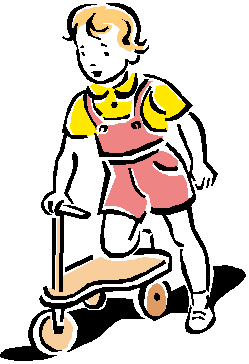
The New Rules of the World of Work

In case you hadn't noticed, it's not 1950 anymore.
The world of work has changed more dramatically in the past 50 years since any time in human history since the Industrial Revolution. The old employment model - the one with which anyone currently 35 or older grew up - has suddenly become irrelevant or worse. If you don't understand the difference between the new and the old rules, you don't have a snowball's chance in a blast furnace of managing your career in the post-Gates era.
Let's take a quick look at some of the changes that have taken place -- and how they affect you.
No More Job Security

Let's take a trip five decades back in time. World War II was a recent memory, and in the aftermath of the war, pent-up desires for peace, prosperity, security, and stability were at an all-time high.
In that world, what was the average person's work history like? He (in that distant world, the work force was made up almost exclusively of men), if he was typical, started and ended his working life with the same company, spending 40 or even 50 years with the same organization. It was very, very rare for a person to change jobs whether voluntarily or involuntarily, and if he did, there was a stigma attached -- something was wrong. Not everyone's working life did, in fact, look like this, but this was the profound cultural myth that undergirded most people's expectations and choices. There was an unwritten psychological contract -- not enforceable in a court of law, but powerful nonetheless -- that basically involved trading loyalty for security. It went like this: "Do what you're told, sell your soul to the company store, and you'll have a job for life. You'll be taken care of until you're old enough to merit a gold watch, and then you can spend your declining years winding it."
Today? The average person entering the full-time workforce for the first time this year can expect, on average, 9 to 13 job changes in his or her working lifetime. (Those are projected median figures, which means that 50% of the population can expect more changes than that.) Even more challenging, the typical worker can expect anywhere from 3 to 5 radical career shifts -- not just moving from one company to another doing the same thing -- within that 40 to 50 year span of time.
What this means is that a completely new approach to thinking about careers is needed. Job security is dead. In its place is marketability or career portability: you trade your problem-solving skills for enhanced, ongoing employability, whether at your current place of work or elsewhere.
In other words, Big Brother isn't going to take care of you any more. Your employer is not your mommy. This course is all about learning how to effectively take care of yourself. But first, more about the changing world of work.
Work is Not an Entitlement

One of my favorite questions to ask audiences is, "Why do jobs exist?" Usually, I receive nothing but a sea of blank stares in return.
The answer? Jobs exist because problems exist. It's that simple. A world without problems would be a world without jobs. Fortunately, we appear to be in no danger of running out of problems, which means that there will always be plenty of work available -- for those who understand what this principle means and how to apply it effectively.
Career counselor Tom Jackson is famous for his "Universal Hiring Rule", which states simply: Any employer will hire any applicant IF...
You're curious about that IF, aren't you? You'd better be... because it's the key to getting and keeping work. Read on.
... IF that person's VALUE AS A PROBLEM SOLVER exceeds his or her cost (financial or otherwise) to the hiring organization.
Read that through a few times and let it sink in. The key to getting (and staying) hired is a threefold one:
1. Know what kinds of problems you enjoy solving.
2. Know what kinds of problems you are good at solving.
3. Know what kinds of problems employers care enough about having solved that they'll part with cold, hard cash in return for a solution.
Many people don't understand this. They think that the world owes them a living. Guess what? The world (regardless of which party is in control of the White House at any given moment) doesn't agree with you. The tough thing about disagreeing with the world is that the world is bigger than you are. So, learn to play the game as it exists, which is that to get something you want, you have to trade for something that someone else (in this case, a potential employer) wants. Most employers are not philanthropists. They hire you because you have something they want and need. Finding out what that is, and marketing it effectively, is your job. You'll learn how in this course.
Have Skills, Will Travel

I'm not talking (necessarily) about traveling in a physical sense (unless you want to); one of the nice things about the Internet revolution is that you can connect with (and, increasingly, work for) people the world over without stepping outside your home. What I'm talking about is career mobility, career portability: the ability to move from one work situation to another fluidly, easily, seamlessly. That's perhaps the most important career skill a working person can have today.
The key to shuffling and reshuffling your career deck is to know what your core skills are. Skills (because they are the means by which people solve problems) are mission-critical elements. Do you know what yours are? By the time you're done with this course, you will.
There has been a significant change in how skills are utilized in the world of work, for two reasons:
1. Technical skills have a much shorter half-life than they used to. These days, if you were an expert on something at the time you started reading this paragraph, by the time you finish it, you won't be. Instant obsolescence is the order of the day. If you bank your career on narrow technical competencies, watch out, because like the Red Queen in Lewis Carroll's allegory, you'll have to run as fast as you can just to stay in the same place.
2. Formal (that is, paper) credentials, of the type granted by schools and other degree-generating institutions, are far less important than they used to be. In part that's because of "credential inflation"; 70 years ago a high-school diploma was a passport to a good entry-level job, 35 years ago it took a college degree, and today in many fields a master's degree is a minimum requirement. But more profoundly it's due to your friend and mine, Bill Gates. Any kindergartener with a mouse and a modem can now (in theory) become an overnight expert on issues that only a few Ph.D. candidates would have known about a generation ago. In that kind of world, it's what you know, not how you learned it (or whether your resume says you "should" know it), that counts.
3. In the paradoxical new world, success means simultaneously being more high-tech and more high-touch (but very few people, or companies, know how to do both well at the same time). That means that, while content skills (narrow technical knowledge) is still important, what's increasingly essential are process skills (broad-brush transferable skills like knowing how to communicate, get along with others, mediate disputes, build alliances, think outside the box, manage resources). Those skills can't be learned in any school; they're either bred in the bone or, if you're made mostly of cartilage, acquired by enrolling in the School of Hard Knocks.
Knowing and developing your skills is an important key to career success in the Brave New World. There's another equally important key, and that's outlined in the next section.
Walk Like An Entrepreneur

The world has never been friendlier to small business than it is today, but I'm not (necessarily) talking about starting your own literal business. Do that if you want to (it's never a bad idea to have a microbusiness of your own on the side, for tax reasons if nothing more), but even if you l-o-v-e your steady paycheck, in the New World of Work you need to think like a self-employed person -- like the CEO of your own little Me, Myself, and I, LLC. Why?
First, you'll be more likely to remember that money follows value, rather than thinking you can get away with the idea that just showing up for work eight hours a day, five days a week, justifies a lifelong paycheck.
Second, you'll remember that you have customers, which we all do; the only form of job security that exists these days is keeping your customers happy. Customers come in two flavors: external (they don't work for the same company you do) and internal (they live one cubicle down the hall from you).
Third, you'll keep in mind that you also have competitors, and that your customers' loyalty to you only extends so far. Sooner or later, they'll want the most quality for the lowest price, and if that doesn't spell y-o-u, they'll remember what every fan of 50's music already knows: my momma told me, you'd better shop around.
Fourth, you'll watch your cash flow, because no business that's drowning in red ink can survive for long, and that includes the miniature "business" that's bounded by the walls of your office, cubicle, or work zone. You'll make sure that you add value, contribute to the bottom line, pay your own way. You'll do what it takes to become and remain a profit center, not a debt generator.
Fifth, you'll pay attention to marketing and advertising yourself. According to the Harvard School of Business, the single biggest mistake an employee can make is to think that simply being good at what they do is enough to guarantee a job. It's not; you also have to be a known, and liked, quantity. Consider how much money the Energizer Corporation spends each year to get customers to associate the idea of pink fuzzy bunnies with their product. You may not need a mascot, but you do need an image that people who count will remember -- and favorably. That's called brand awareness, and it counts at least as much as objective competence when it comes to purchasing (that is, hiring and retention) decisions.
One last change, and you'll become a certified workplace change expert!
Navigating the Neutral Zone

All life changes, according to self-proclaimed transition expert William Bridges, have three stages: an ending, the "neutral zone" of seeming chaos, and a beginning. For instance, a caterpillar that is halfway to becoming a butterfly is mostly liquid. Prior to the change, you had something that could crawl and eat leaves; when the change is done, you will have something totally different that can fly and sip nectar. In between, you have apparent chaos. That's the nature of change. You have to let go of the old (which is scary) before you can grab onto the new. Like a trapeze artist suspended in midair between two bars, you are kept from falling simply by the momentum of your own act.
During this middle stage, you feel lost in the fog. You can no longer tell which way is up. You feel as if you must have made a mistake. But if you keep going, a new beginning is just ahead.
Why is it hard to trust these facts? Because of another powerful myth in our culture: that "successful" people never struggle, never founder, are never confused or frightened or at a loss, never make any choices that turn out badly. This is nonsense, of course, but because we've been socialized to think this way, we assume that there must be something wrong with us when it doesn't happen that way in our own lives. In fact, there's nothing wrong at all; the truth is that it's impossible to recognize either success or failure while you're in the middle of experiencing either.
The antidote? Learn to trust the seasons of life. When things are bad, they can only get better, but when things are going great, the smart money is on the proposition that there's a downturn looming. According to Daniel Levinson, emeritus professor at Yale, the average adult experiences a major life transition every seven years, so you might want to compute how long it's been since your last one and get out your Franklin Day Planner now to schedule the next one in advance.
This course will teach you how to "navigate the neutral zone" and make the most of confusing, hard times. They're a paradoxical sign of progress, because the alternative to facing change is to become a fossil. There are only two types of people in the world: those who are in process, and those who are dead. Which are you?
Interested in learning more? Stay tuned... the full Online Career Course is coming soon to a Web browser near you!
Copyright (c) 2001 -- Business Development Group
All rights reserved